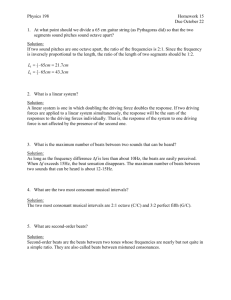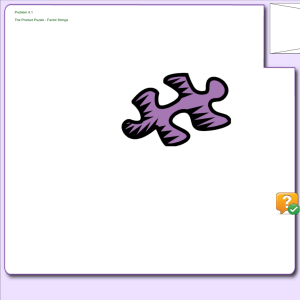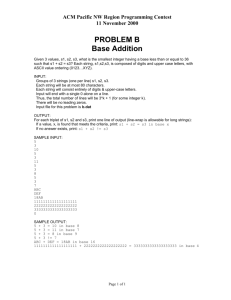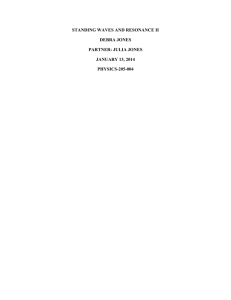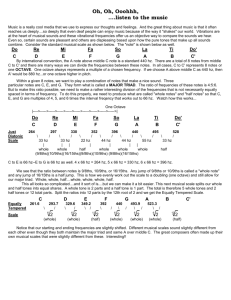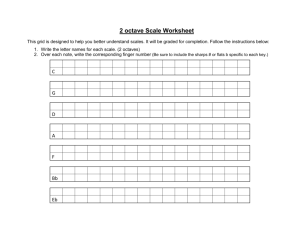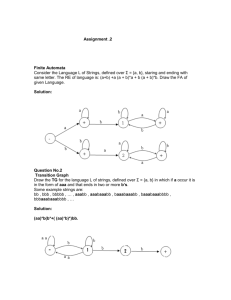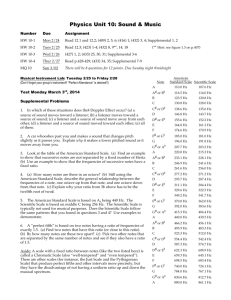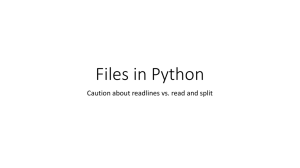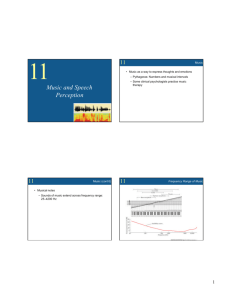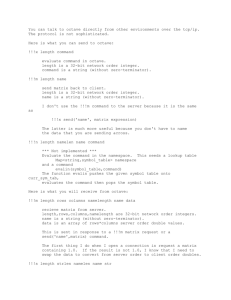Musical note to frequency mapping
advertisement
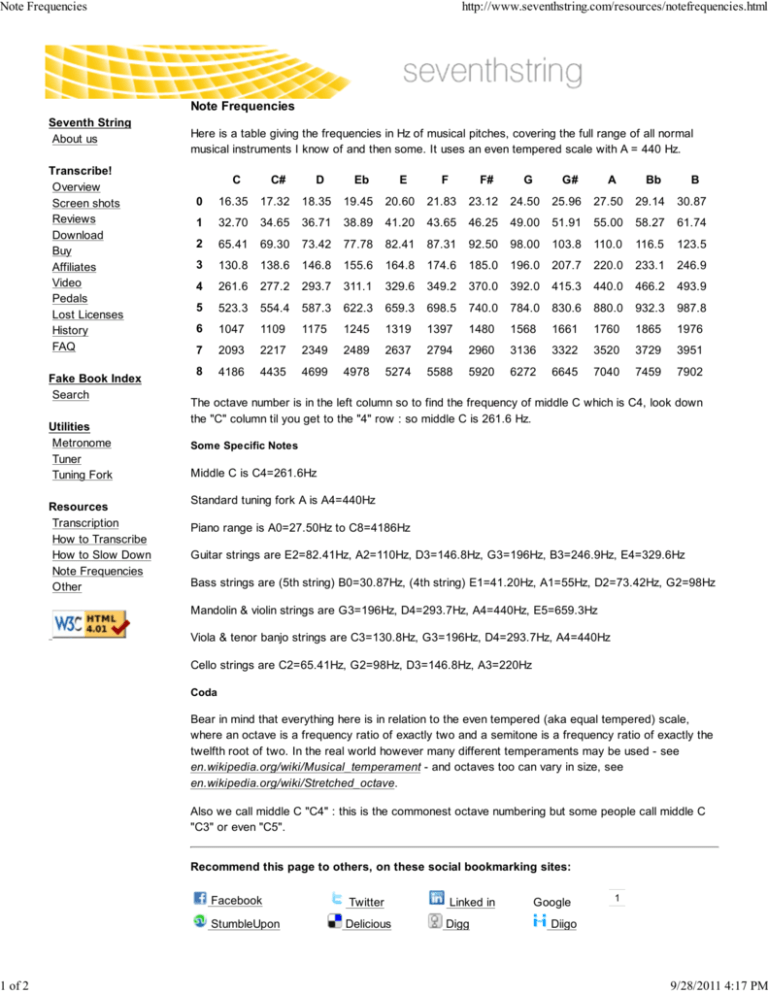
Note Frequencies 1 of 2 http://www.seventhstring.com/resources/notefrequencies.html Note Frequencies Seventh String About us Transcribe! Overview Screen shots Reviews Download Buy Affiliates Video Pedals Lost Licenses History FAQ Fake Book Index Search Utilities Metronome Tuner Tuning Fork Resources Transcription How to Transcribe How to Slow Down Note Frequencies Other Here is a table giving the frequencies in Hz of musical pitches, covering the full range of all normal musical instruments I know of and then some. It uses an even tempered scale with A = 440 Hz. C C# D Eb 0 16.35 17.32 18.35 19.45 1 32.70 34.65 36.71 2 65.41 69.30 3 130.8 4 E F F# G G# A Bb B 20.60 21.83 23.12 24.50 25.96 27.50 29.14 30.87 38.89 41.20 43.65 46.25 49.00 51.91 55.00 58.27 61.74 73.42 77.78 82.41 87.31 92.50 98.00 103.8 110.0 116.5 123.5 138.6 146.8 155.6 164.8 174.6 185.0 196.0 207.7 220.0 233.1 246.9 261.6 277.2 293.7 311.1 329.6 349.2 370.0 392.0 415.3 440.0 466.2 493.9 5 523.3 554.4 587.3 622.3 659.3 698.5 740.0 784.0 830.6 880.0 932.3 987.8 6 1047 1109 1175 1245 1319 1397 1480 1568 1661 1760 1865 1976 7 2093 2217 2349 2489 2637 2794 2960 3136 3322 3520 3729 3951 8 4186 4435 4699 4978 5274 5588 5920 6272 6645 7040 7459 7902 The octave number is in the left column so to find the frequency of middle C which is C4, look down the "C" column til you get to the "4" row : so middle C is 261.6 Hz. Some Specific Notes Middle C is C4=261.6Hz Standard tuning fork A is A4=440Hz Piano range is A0=27.50Hz to C8=4186Hz Guitar strings are E2=82.41Hz, A2=110Hz, D3=146.8Hz, G3=196Hz, B3=246.9Hz, E4=329.6Hz Bass strings are (5th string) B0=30.87Hz, (4th string) E1=41.20Hz, A1=55Hz, D2=73.42Hz, G2=98Hz Mandolin & violin strings are G3=196Hz, D4=293.7Hz, A4=440Hz, E5=659.3Hz Viola & tenor banjo strings are C3=130.8Hz, G3=196Hz, D4=293.7Hz, A4=440Hz Cello strings are C2=65.41Hz, G2=98Hz, D3=146.8Hz, A3=220Hz Coda Bear in mind that everything here is in relation to the even tempered (aka equal tempered) scale, where an octave is a frequency ratio of exactly two and a semitone is a frequency ratio of exactly the twelfth root of two. In the real world however many different temperaments may be used - see en.wikipedia.org/wiki/Musical_temperament - and octaves too can vary in size, see en.wikipedia.org/wiki/Stretched_octave. Also we call middle C "C4" : this is the commonest octave numbering but some people call middle C "C3" or even "C5". Recommend this page to others, on these social bookmarking sites: Facebook StumbleUpon Twitter Delicious Linked in Digg Google 1 Diigo 9/28/2011 4:17 PM Note Frequencies 2 of 2 http://www.seventhstring.com/resources/notefrequencies.html Seventh String Home 9/28/2011 4:17 PM
